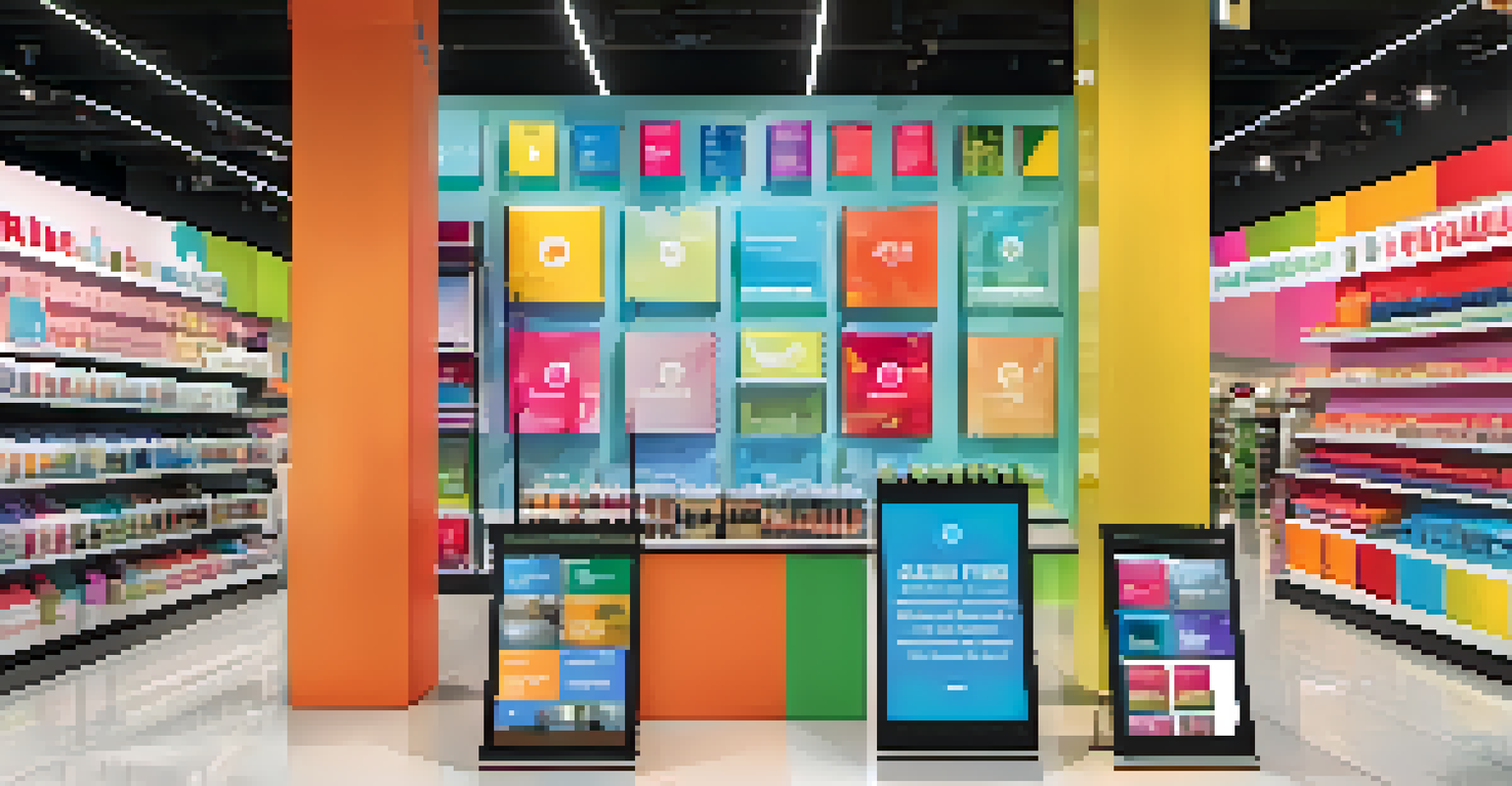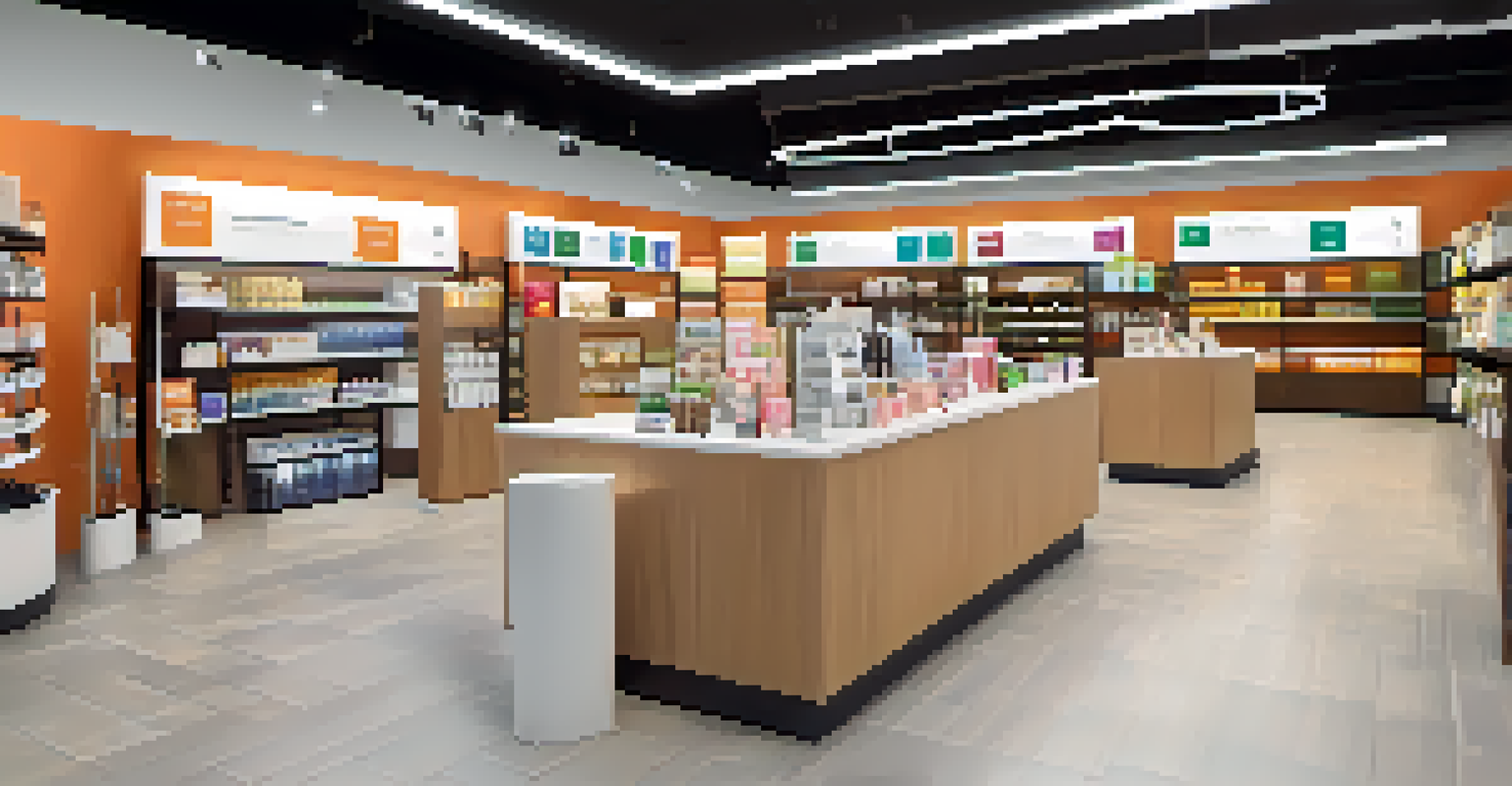Retail Marketing Strategies to Boost Sales and Customer Loyalty

Understanding Your Target Audience for Better Engagement
To effectively boost sales and customer loyalty, it’s crucial to understand who your target audience is. This means digging deep into their preferences, shopping habits, and pain points. By creating customer personas, you can tailor your marketing efforts to resonate more with your audience, making them feel valued and understood.
The aim of marketing is to know and understand the customer so well the product or service fits him and sells itself.
For instance, if your primary customers are young professionals, consider their lifestyle and busy schedules. This understanding can guide your promotional efforts, such as offering convenient shopping experiences or flexible payment options. When customers see that you cater to their needs, they’re more likely to return.
Ultimately, knowing your audience not only enhances engagement but also builds a strong community around your brand. This connection fosters loyalty, as customers feel a relationship with your business that goes beyond transactions.
Utilizing Social Media to Boost Brand Awareness
In today’s digital age, social media is a powerful tool for retail marketing that can significantly increase brand awareness. Platforms like Instagram and Facebook allow you to showcase your products visually, engage with customers, and share promotions instantly. This interaction can create a buzz around your brand, attracting new customers.

For example, consider running a social media campaign that encourages users to share their experiences with your products. This not only promotes engagement but also serves as authentic testimonials that can sway potential buyers. When people see their peers enjoying your products, they’re more likely to make a purchase.
Know Your Audience for Engagement
Understanding your target audience allows you to tailor your marketing efforts, enhancing customer engagement and loyalty.
Moreover, social media offers valuable insights through analytics, allowing you to fine-tune your marketing strategies over time. By observing what content resonates most with your audience, you can create more targeted campaigns that drive sales and enhance customer loyalty.
Creating Memorable In-Store Experiences
In-store experiences can be a game changer in retail marketing. By creating an inviting atmosphere, you can encourage customers to spend more time in your store, ultimately boosting sales. This could include anything from unique store layouts to engaging product displays that capture attention.
Your most unhappy customers are your greatest source of learning.
Imagine walking into a store that not only showcases products but also includes interactive elements like product testing stations or knowledgeable staff ready to assist. These experiences not only make shopping enjoyable but also foster a deeper connection between the customer and the brand.
Furthermore, memorable experiences often lead to word-of-mouth referrals, as satisfied customers share their positive experiences with friends and family. This organic marketing can significantly enhance your brand’s reputation and customer loyalty.
Implementing Loyalty Programs to Retain Customers
Loyalty programs are an effective way to retain customers and encourage repeat purchases. By offering rewards such as discounts, exclusive access, or points for every purchase, you create an incentive for customers to keep coming back. This not only increases sales but also builds a loyal customer base.
For instance, a coffee shop might implement a ‘buy ten, get one free’ card. This simple strategy encourages customers to return regularly, as they work towards their next reward. Over time, customers develop a habit of visiting your store more frequently, directly impacting your revenue.
Leverage Social Media for Growth
Utilizing social media platforms effectively can significantly boost brand awareness and attract new customers through engagement and authentic testimonials.
Additionally, loyalty programs provide valuable data about your customers’ buying habits. This information can help you tailor future marketing efforts, ensuring that you continue to meet your customers’ needs and preferences.
Leveraging Email Marketing for Targeted Promotions
Email marketing remains one of the most effective channels for retail marketing, allowing you to reach your customers directly with tailored promotions. By segmenting your email list based on customer behavior, you can send targeted messages that resonate with specific interests. This personalization increases the likelihood of conversions.
For example, consider sending a special promotion on winter apparel to customers who previously bought summer clothing. This targeted approach not only feels more relevant to the customer but also shows that you’re paying attention to their preferences.
Moreover, regular newsletters can keep your brand top-of-mind, informing customers about new products, upcoming sales, or special events. By maintaining consistent communication, you strengthen your relationship with customers and encourage ongoing loyalty.
Adopting Omnichannel Marketing for Seamless Experiences
Omnichannel marketing is all about creating a seamless experience for customers across various platforms, whether they shop online, in-store, or through mobile apps. By integrating your marketing efforts, you ensure that customers encounter a consistent brand message no matter where they engage with your business.
For instance, a customer might see a product on your website, receive an email about a promotion, and then visit your store to make a purchase. If their experience is smooth and cohesive, they’re more likely to feel satisfied and become repeat customers. This approach not only enhances customer experience but also boosts brand loyalty.
Implement Loyalty Programs Effectively
Loyalty programs incentivize repeat purchases, fostering a loyal customer base and providing valuable insights into buying habits.
Additionally, tracking customer interactions across channels allows you to gather insights into their preferences. Understanding how they navigate your brand helps you refine your strategies and improve the overall shopping experience.
Utilizing Customer Feedback to Improve Offerings
Customer feedback is invaluable for refining your retail marketing strategies and improving your offerings. By actively soliciting opinions through surveys, reviews, or social media, you gain insights into what customers appreciate and what areas need improvement. This feedback loop shows that you value their input.
For example, if customers frequently mention a desire for more sustainable products, you might consider expanding your eco-friendly offerings. By responding to customer feedback, you’re not only improving your product line but also demonstrating your commitment to their values.

Moreover, addressing feedback promptly can enhance customer satisfaction. When customers see that their concerns are taken seriously, they are more likely to remain loyal and recommend your brand to others.